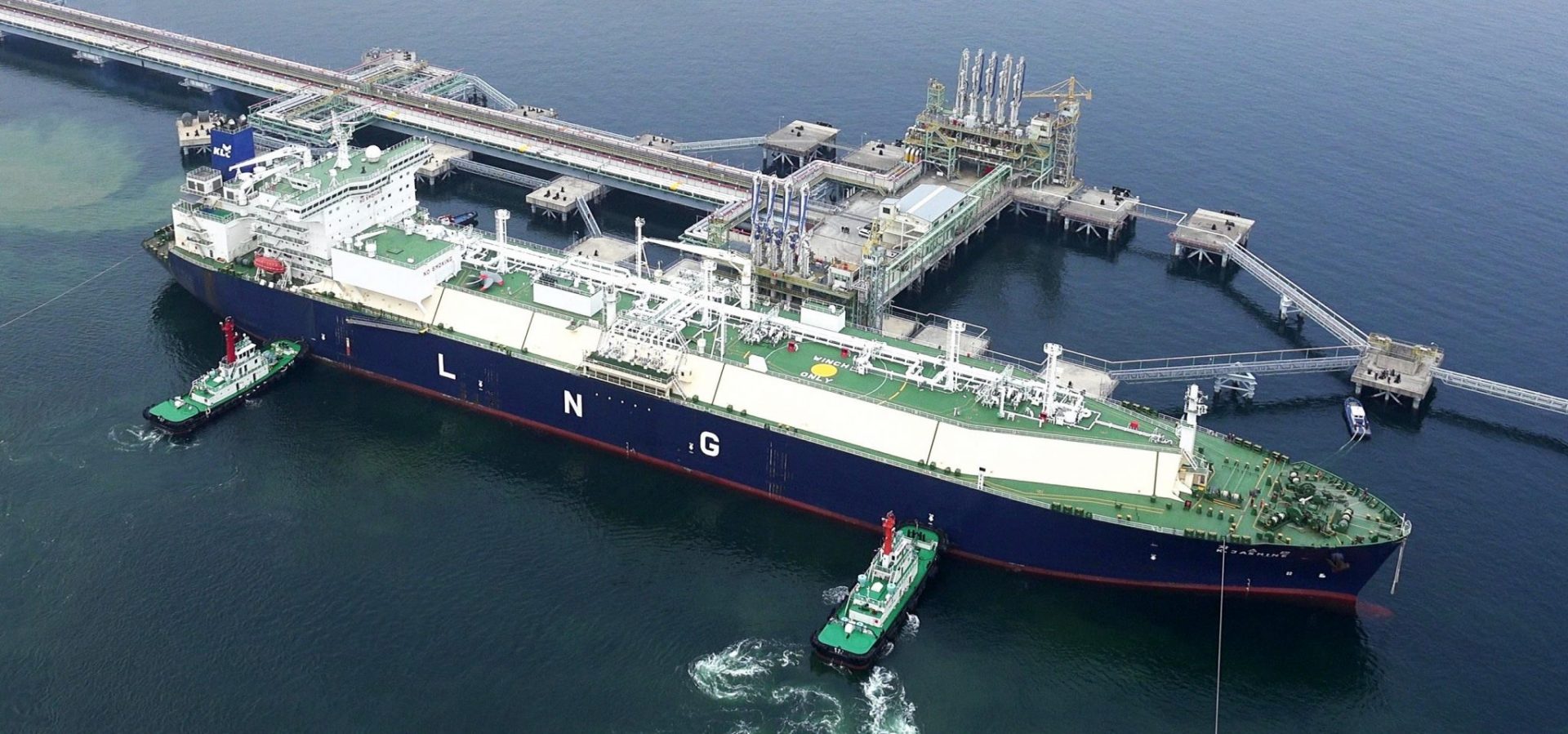Taiwan Turns To LNG: Replacing Nuclear Power With Natural Gas

Table of Contents
The Declining Role of Nuclear Power in Taiwan's Energy Portfolio
Taiwan's reliance on nuclear power is waning, driven by a combination of compelling concerns. The aging infrastructure and increasing safety anxieties surrounding its existing nuclear plants are central to this decision.
Aging Nuclear Plants and Safety Concerns
Taiwan's operational nuclear power plants are reaching the end of their operational lifespans, raising serious safety concerns.
- Aging infrastructure: The reactors are showing signs of wear and tear, increasing the risk of malfunctions and accidents.
- Seismic vulnerability: Taiwan lies in a seismically active region, posing a significant threat to the structural integrity of the plants.
- Spent fuel storage: The safe and long-term storage of spent nuclear fuel remains a significant challenge.
- Past incidents: While no major accidents have occurred, minor incidents have highlighted the inherent risks associated with aging nuclear facilities.
Public opinion has significantly shifted, with growing anti-nuclear sentiment fueled by anxieties surrounding safety and the potential for catastrophic accidents. This public pressure has played a crucial role in shaping government policy.
Economic Considerations of Nuclear Power Plant Decommissioning
Decommissioning nuclear power plants is an expensive and complex undertaking.
- High decommissioning costs: The process involves significant financial investments in dismantling facilities, managing radioactive waste, and ensuring environmental remediation.
- Long-term liability: The government bears the responsibility for the long-term management of nuclear waste, incurring substantial costs over many decades.
- Opportunity costs: The financial resources dedicated to decommissioning could be allocated to other crucial infrastructure projects.
While decommissioned sites might offer potential for alternative uses in the future, the immediate costs associated with decommissioning are substantial.
Political Opposition and Public Pressure
The political landscape surrounding nuclear power in Taiwan is highly contested. Opposition parties and numerous activist groups have consistently advocated for a complete phase-out of nuclear energy.
- Referendums and policy debates: Several referendums have been held, reflecting the public's strong opinions on the issue. Policy debates within the legislature are often intense and highly publicized.
- Media influence: Media coverage plays a significant role in shaping public perception and influencing political decisions related to nuclear power.
This intense political and public pressure has created an environment where a transition away from nuclear power became inevitable.
LNG Imports: Fueling Taiwan's Energy Future
To replace nuclear energy, Taiwan is aggressively expanding its LNG import infrastructure and diversifying its energy sources.
Expanding LNG Import Infrastructure
Significant investments are being made to develop new LNG terminals and import facilities across Taiwan.
- New terminal construction: Large-scale projects are underway to expand import capacity, ensuring a reliable supply of LNG.
- Economic stimulus: This infrastructure development provides a significant boost to the economy, creating jobs and stimulating related industries.
- Strategic locations: Terminals are being strategically located to optimize distribution across the island.
These projects are crucial for securing Taiwan's energy independence and reducing its vulnerability to supply disruptions.
Diversification of LNG Suppliers
Taiwan is actively pursuing a strategy of diversifying its LNG suppliers to mitigate geopolitical risks.
- Multiple sourcing: Contracts are being secured with multiple suppliers, reducing reliance on any single country or region.
- Geopolitical considerations: The choice of suppliers is carefully evaluated based on their political stability and reliability.
- Long-term contracts: Negotiations are focusing on securing long-term supply contracts to ensure price stability and reliable delivery.
This diversification strategy is essential to maintain energy security in the face of global market fluctuations.
The Role of Private Sector Investment
The private sector is playing a crucial role in developing LNG infrastructure and securing supply contracts.
- Private sector participation: Several major energy companies are investing heavily in Taiwan's LNG sector.
- Government incentives: The government is providing incentives and regulatory frameworks to encourage private investment.
- Public-private partnerships: Collaboration between the public and private sectors is driving the development of the LNG industry.
Environmental Impacts and Mitigation Strategies
While LNG is considered a cleaner-burning fuel than coal, its transition still necessitates careful consideration of its environmental impacts.
Reducing Greenhouse Gas Emissions
Switching to natural gas still leads to greenhouse gas emissions, although generally lower than coal.
- Carbon footprint comparison: While LNG produces fewer greenhouse gas emissions than coal, it still significantly contributes to climate change compared to nuclear power.
- Mitigation strategies: The government is exploring strategies to mitigate emissions, including carbon capture and storage technologies.
- Renewable energy integration: Combining LNG with renewable energy sources will be essential to minimize the overall carbon footprint.
Air Quality and Public Health
Increased use of LNG needs careful management to minimize air pollution.
- Air quality monitoring: Strict environmental regulations and monitoring programs are essential to protect public health.
- Cleaner burning technologies: The adoption of advanced technologies will help minimize harmful emissions.
Efforts to minimize air pollution are vital for public health and environmental protection.
Conclusion: Taiwan's Energy Transition: A Long-Term Strategy with LNG at the Forefront
Taiwan's transition away from nuclear power and its embrace of LNG represent a complex and multifaceted strategic decision. While challenges remain, particularly concerning environmental impact and the need for continued diversification, the shift towards LNG offers a viable pathway towards energy security and economic stability. The substantial investments in LNG infrastructure and the proactive pursuit of diversified supply sources underscore Taiwan's commitment to this long-term energy strategy. Stay informed about Taiwan's progress in transitioning to LNG and its implications for the future of energy independence. Understanding how Taiwan's investment in LNG is shaping its energy security and sustainability goals is crucial for comprehending the island's future.

Featured Posts
-
 Abn Amro Potential Fine From Dutch Central Bank Over Bonuses
May 21, 2025
Abn Amro Potential Fine From Dutch Central Bank Over Bonuses
May 21, 2025 -
 Analyse Van Het Debat Over Betaalbare Huizen Abn Amro En Geen Stijl
May 21, 2025
Analyse Van Het Debat Over Betaalbare Huizen Abn Amro En Geen Stijl
May 21, 2025 -
 Why Is D Wave Quantum Inc Qbts Stock Performing So Poorly In 2025
May 21, 2025
Why Is D Wave Quantum Inc Qbts Stock Performing So Poorly In 2025
May 21, 2025 -
 Le Bouillon A Clisson Un Festival De Spectacles Engages
May 21, 2025
Le Bouillon A Clisson Un Festival De Spectacles Engages
May 21, 2025 -
 Coldplay Concert Review A Night Of Music Light And Powerful Messages
May 21, 2025
Coldplay Concert Review A Night Of Music Light And Powerful Messages
May 21, 2025
Latest Posts
-
 Jalkapallo Huuhkajien Avauskokoonpanossa Merkittaeviae Muutoksia
May 21, 2025
Jalkapallo Huuhkajien Avauskokoonpanossa Merkittaeviae Muutoksia
May 21, 2025 -
 Huuhkajien Yllaetykset Avauskokoonpanoon Kolme Muutosta
May 21, 2025
Huuhkajien Yllaetykset Avauskokoonpanoon Kolme Muutosta
May 21, 2025 -
 Huuhkajien Avauskokoonpano Naein Se Naeyttaeae Kaellman Ulos
May 21, 2025
Huuhkajien Avauskokoonpano Naein Se Naeyttaeae Kaellman Ulos
May 21, 2025 -
 Suomen Huuhkajat Avauskokoonpano Paljastui Naemae Pelaajat Aloittavat
May 21, 2025
Suomen Huuhkajat Avauskokoonpano Paljastui Naemae Pelaajat Aloittavat
May 21, 2025 -
 Jalkapallo Huuhkajien Kokoonpanossa Merkittaeviae Muutoksia
May 21, 2025
Jalkapallo Huuhkajien Kokoonpanossa Merkittaeviae Muutoksia
May 21, 2025
